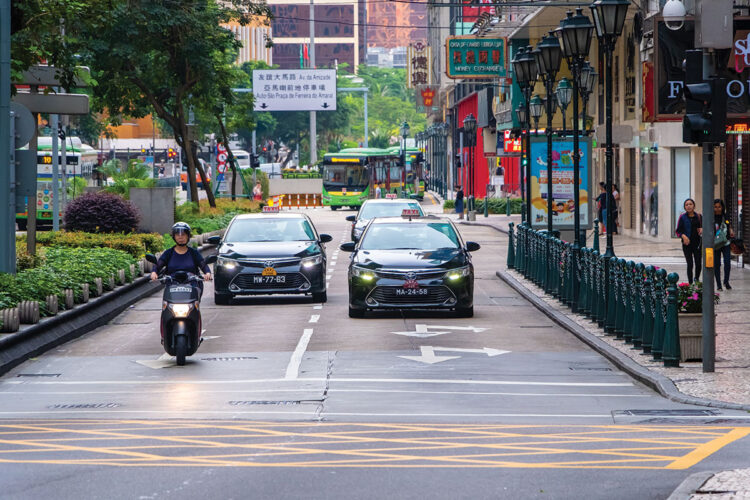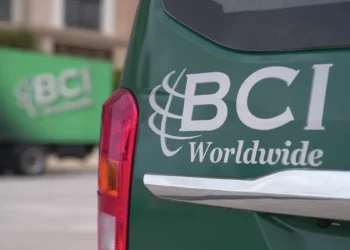“Ride-hailing” services are regarded as one of the most convenient methods of transportation in today’s society, but they have yet to get off the ground in Macau. IAG explores the issue.
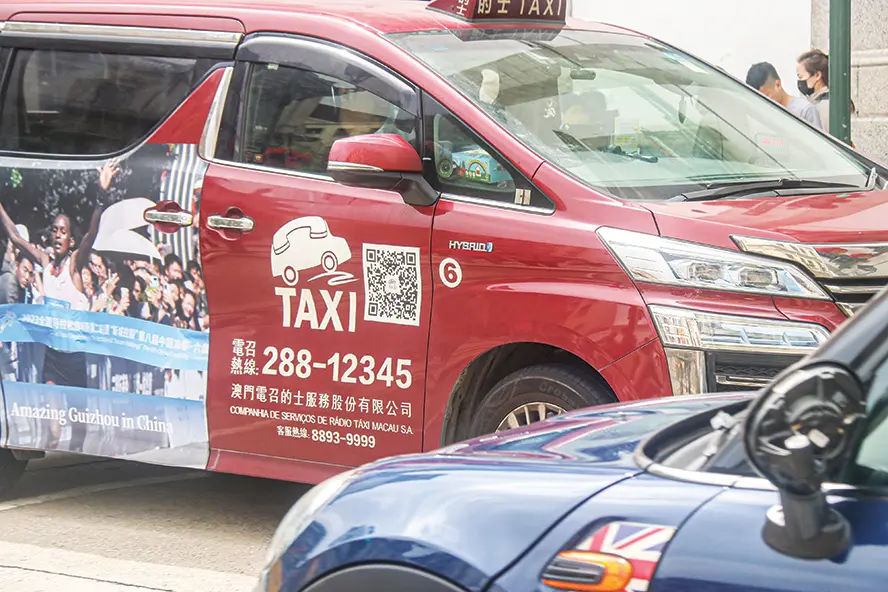 In 2015, global ride-sharing service Uber attempted to enter the Macau market. But instead of a warm welcome, the company encountered numerous challenges. Within a short operational period of about 600 days, Uber drivers accumulated millions of dollars in fines and eventually Uber was forced to suspend its service in 2017 due to the overwhelming pressure.
In 2015, global ride-sharing service Uber attempted to enter the Macau market. But instead of a warm welcome, the company encountered numerous challenges. Within a short operational period of about 600 days, Uber drivers accumulated millions of dollars in fines and eventually Uber was forced to suspend its service in 2017 due to the overwhelming pressure.
Fast forward to 2023 and Macau is again broaching the topic of ride-hailing services. In October 2023, legislator Ron Lam U Tou questioned the Macau government about the possibility of introducing ride-hailing services to the city.
However, the government’s stance remains steadfastly negative, completely dismissing the feasibility of such services. Officials stated at the time, “The government has already conducted studies on this matter, which requires significant amendments to existing laws to [be implemented].
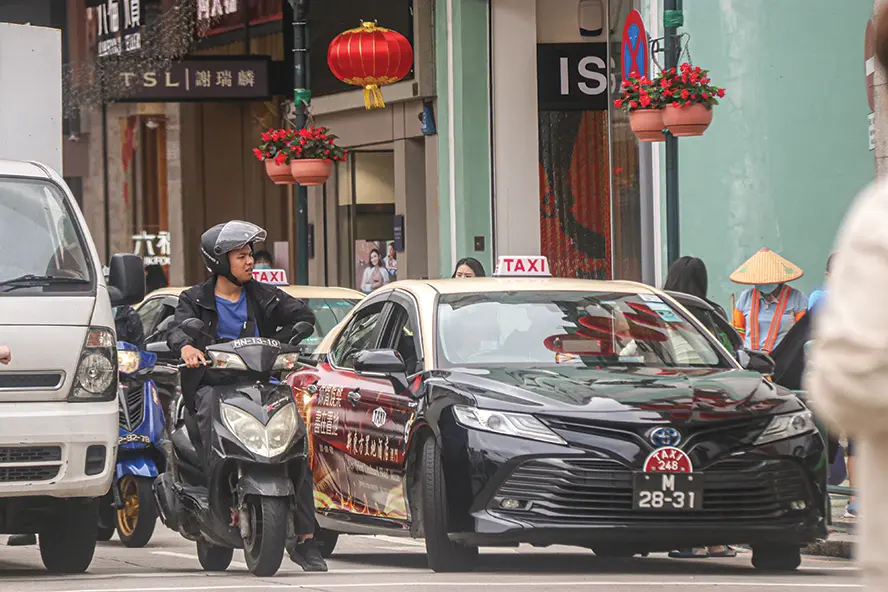 “The SAR government reiterates that it shall not allow any vehicles to operate as a taxi without authorization, as the government has to consider the safety of passengers and residents.”
“The SAR government reiterates that it shall not allow any vehicles to operate as a taxi without authorization, as the government has to consider the safety of passengers and residents.”
Legal complexity and public safety have become the go-to reasons for the SAR government’s denial of legalization relating ride-hailing services, however these problems are no longer concerns for mainland China and its population of 1.4 billion people.
In 2016, China took the lead in legalizing ride-hailing services and implemented a strict regulatory regime. All drivers’ information and their driving routes are under real-time monitoring through network connectivity. If a driver deviates from the designated route or exhibits unreasonable stopping times, the system will automatically trigger an alert.
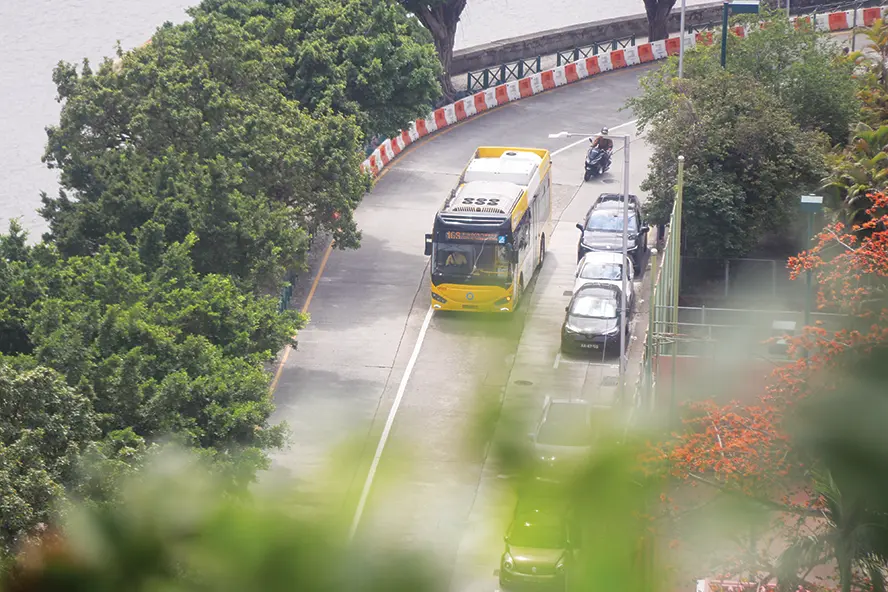 Since the legalization of ride-hailing services in the mainland, “unlicensed taxis” have largely disappeared. Mainland Chinese residents and tourists enjoy greater protections during transportation, as ride-hailing services have eliminated concerns like overcharging or refusal of rides. Over time, ride-hailing services have become the primary means of transportation in mainland China, giving rise to a series of related industries and ancillary services.
Since the legalization of ride-hailing services in the mainland, “unlicensed taxis” have largely disappeared. Mainland Chinese residents and tourists enjoy greater protections during transportation, as ride-hailing services have eliminated concerns like overcharging or refusal of rides. Over time, ride-hailing services have become the primary means of transportation in mainland China, giving rise to a series of related industries and ancillary services.
From a results-oriented perspective, ride-hailing services have made travel more convenient and safer for mainland residents and tourists.
As Macau is an international tourism and leisure destination, why does the Macau government persistently deny the legalization of ride-hailing services? Why is there not even an opportunity for open discussion?
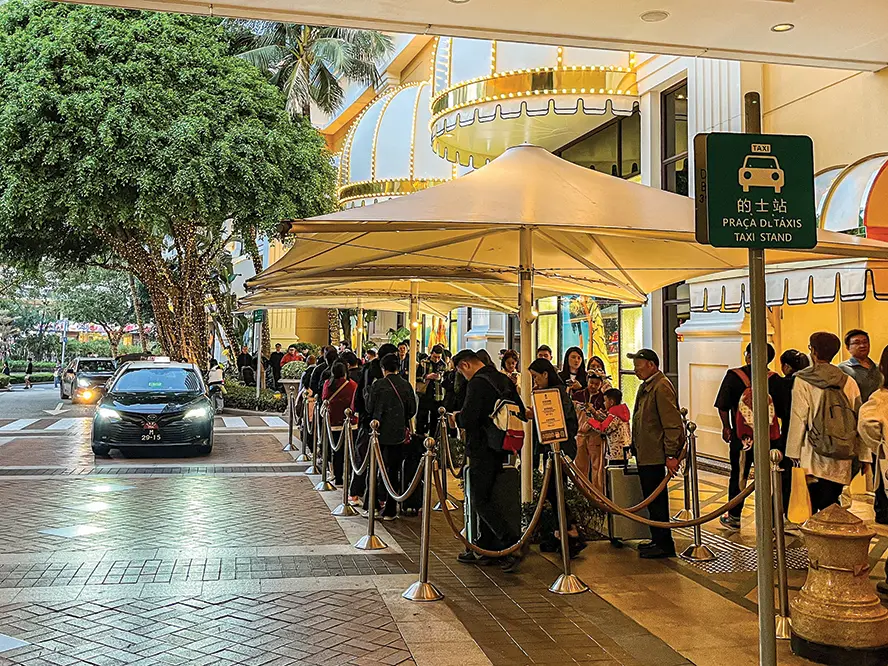 Based on the current situation, authorities perhaps believe there is no need for ride-hailing services because Macau is already home to Macau Radio Taxi Services Limited.
Based on the current situation, authorities perhaps believe there is no need for ride-hailing services because Macau is already home to Macau Radio Taxi Services Limited.
However, from the perspective of residents and tourists, the “radio taxi” service is entirely different from “ride-hailing services”. The regulatory approach to radio taxis is similar to the traditional Macau (black) taxis, with strict government control over vehicle appearance, types, quantity and fares. Currently, there are only 300 radio taxis available for booking.
Like other taxis in Macau, the radio taxi service also faces problems like vehicle shortages and poor service attitude, which have resulted in criticism and dissatisfaction among users.
In addition, the phone numbers for reserving radio taxis are only available for numbers from Macau, mainland China and Hong Kong, and are not open to phone numbers from other regions. In other words, it is nearly impossible for overseas tourists visiting Macau to use the radio taxi service.
 Travel trends have significantly changed in the post-COVID era, with increasing numbers of family and IVS (individual visit scheme) travelers visiting Macau and looking for more personalized and immersive travel experiences. Transportation undoubtedly has a significant impact on the perception of these tourists towards Macau and its international tourism brand.
Travel trends have significantly changed in the post-COVID era, with increasing numbers of family and IVS (individual visit scheme) travelers visiting Macau and looking for more personalized and immersive travel experiences. Transportation undoubtedly has a significant impact on the perception of these tourists towards Macau and its international tourism brand.
The Macau SAR government has been striving for the development of a smart city, and in recent years, there have been improvements in electronic payment systems and digitalization. This undoubtedly creates greater conditions for the legalization of ride-hailing services. Perhaps it is time for Macau society to reopen the discussion on ride-hailing services, exploring broader and more in-depth topics. Thus, common solutions can be sought to overcome the so-called legal challenges.






